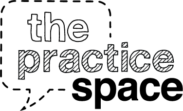
I was in third grade when I first heard about speech and debate. I remember my teacher, Sally Woolsey, telling my mom about the amazing program at El Cerrito High School. As a quiet, reserved, 8-year old, debate sounded horrifying. For my mom, who had immigrated from the Philippines to California in her twenties, debate and public speaking meant that her daughter could become a leader. She signed me up for my first summer public speaking program. In “Confident Communication”, I remember hiding in the back row, not saying anything until I absolutely had to present my final “how-to” speech on making these terrible peanut butter cornflake balls. The night before the speech was full of angst and stress at our house, with peanut butter and tears smeared everywhere. But I got it done, and I thought that would be it.
Public speaking caught up with me again in 8th grade with a visit from El Cerrito High School students recruiting for the speech and debate team. One of my best friends, Audrey McIntyre, had a sister who was in speech and debate and she stuck around after class to make sure I completed the registration form for the upcoming summer camp hosted by two local West Contra Costa Unified schools, Pinole Valley and El Cerrito. I took so long to pick out my outfit on the first day of camp. A high school senior walked onto the stage and started performing an original play. Another did a poem, followed by an informative presentation about bubble gum. There was an acting duet, followed by a passionate one-on-one debate about morality. I was mesmerized: this was way more than peanut butter balls. There were so many speech and debate options, and in this incredible new world, the choice was up to me.

I spent four years on the El Cerrito High Speech and Debate Team, doing speech events such as Original Prose and Poetry, Dramatic Interpretation, and Duo Interpretation. The late Catherine and Sanford Berman were nationally-recognized, legendary coaches who constantly rooted for me, pushing me outside my comfort zone and urging me to do Lincoln-Douglas Debate. When I expressed my fears about having to speak on the spot, I remember Mrs. Berman saying, “What’s the worst that can happen?” While I had a lot of answers to that one, I took their advice and the older debaters took me under their wing. They made it cool to discuss Locke and Foucault at lunchtime or do “rebuttal redos”, practicing past speeches to a wall.
Speech success came quickly, with three consecutive years placing in the top 5 in the finals of State Championships, and qualifying to National Championships. Debate took so much more work, starting off with a full two years of me losing the majority of my rounds. After receiving a financial need scholarship to a summer debate camp in Iowa, something finally clicked. During my junior and senior years, I started going undefeated at almost every tournament, traveling to Chicago, Georgia, and Texas for debate, placing second in the Stanford Round Robin out of the top 10 debaters in the country. I practiced constantly, and never failed to notice that I was often one of the only girls in elimination rounds, which made me work even harder. Although this made me even more nervous before every round, my nerves faded away with the help of my newfound “debate mode” during rounds, infectious happiness of my teammates after rounds, and new friendships I was making with students around the country.

After graduation, I didn’t want to leave this world. I stayed on as a volunteer at El Cerrito High, coaching speech and debate students in my dorm at UC Berkeley and leading summer camps at the high school during the summer. I kept the team going after the Bermans retired and even wrote my PhD dissertation about how speech and debate supported students with disabilities. As a professor and then later as a program officer at a foundation, I continued coaching students every Sunday afternoon in my living room and attending tournaments on weekends. My volunteer hours surpassed my work hours during peak seasons, and still, I doubted whether I should continue. It didn’t seem important enough, but I also couldn’t imagine life without it.

It all became clear after rounds at the 2016 Tournament of Champions in Kentucky when one of my speech students, Ryan Miller, said, “It’s not about the success, it’s about having a space to practice and people who will support you along the way.” I wrote “The Practice Space” on a hotel notepad and threw away all my other sketches of educational nonprofits I was thinking about forming. I was at a tournament when the idea was formed and I was at a tournament when I filed my nonprofit paperwork. I was with speech and debate students when I first got the keys to the office, received my first business cards, and put our first ad in the speech and debate showcase program. I shared my doubts with the team and they kept my spirits up in the hard early days. They coached at the first summer camps and graduates joined my Board and my first staff. Ryan Miller is now one of the lead coaches in our young speakers programs, and another former El Cerrito debate coach, Joel Jacobs, leads our summer debate camp.

El Cerrito Speech and Debate helped me learn and accept what I love and literally realize my dreams. After 21 years of coaching, I am proud to be attending yet another State Qualifying Tournament this Sunday. As I prepare students at multiple school teams (including El Cerrito), I witness how they discover what their voice can do, secure in the knowledge that no matter how afraid they might be, there’s always a team behind them. It is an honor to be on their team.



